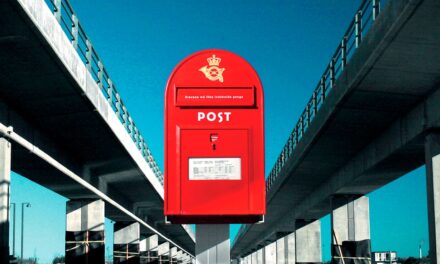
Consignia strikes blow to rail industry
Consignia will next month strike another blow to the beleaguered rail industry by revealing it does not plan to renew one of the largest long-term contracts in the industry.
A review of the Post Office group’s transport strategy is understood to have concluded it should opt instead for “more flexible” short-term agreements. These are expected to result in a substantial reduction in mail trains in favour of road and air.
Consignia uses 58 trains a night under a 10-year contract worth approximately £650m, but has been reconsidering its dependence on rail after problems with Railtrack led to a dramatic fall in reliability levels.
Removing the long-term security provided by the current deal could further stretch railway finances and hamper Government attempts to shift more freight from road to rail for environmental reasons.
The Post Office contract, agreed with freight operator EWS, is not due for renegotiation until 2006, but Consignia plans to reduce the number of mail trains before then by using break clauses which can be triggered in the event of poor reliability.
Three routes will be phased out over the next few weeks, and people familiar with the Consignia transport review said it has taken a “very radical” approach to encourage alternatives such as air freight.
“We will still be a user of rail, but to what degree depends on the outcome of this review which has looked at reliabilty, cost and the environmental impact,” said Consignia yesterday. EWS defended the flexibility of the current contract, pointing to 200 extra trains recently supplied to help with Christmas post. However, the operator admitted that reliability had suffered due to the wider problems stemming from the Hatfield crash.
“It’s deeply, deeply frustrating because this period coincided with our best internal reliability since the beginning of the contract. Almost all the delays were due to Railtrack,” said the freight operator. EWS is already under financial pressure stemming from this year’s network disruption, fines and service cancellations due to the row over illegal immigrants through the channel tunnel.
Railtrack admitted mail train services were “extremely disrupted” after Hatfield because of night-time engineering, but had nearly recovered.
“We’re back up to 92-93 per cent reliability and during Hatfield we were down to the 50s and 60s,” said an official.
Lord Berkley, chairman of the Rail Freight Group, said he was “confident” rail companies would keep the business even if under more flexible contracts, and new business from rival package delivery services was in the pipeline.
The Office of the Rail Regulator recently ruled that the government’s Strategic Rail Authority should use subsidy to pay about half the freight company’s infrastructure charges from Railtrack – at an estimated cost of £500m over five years.









